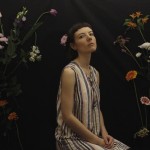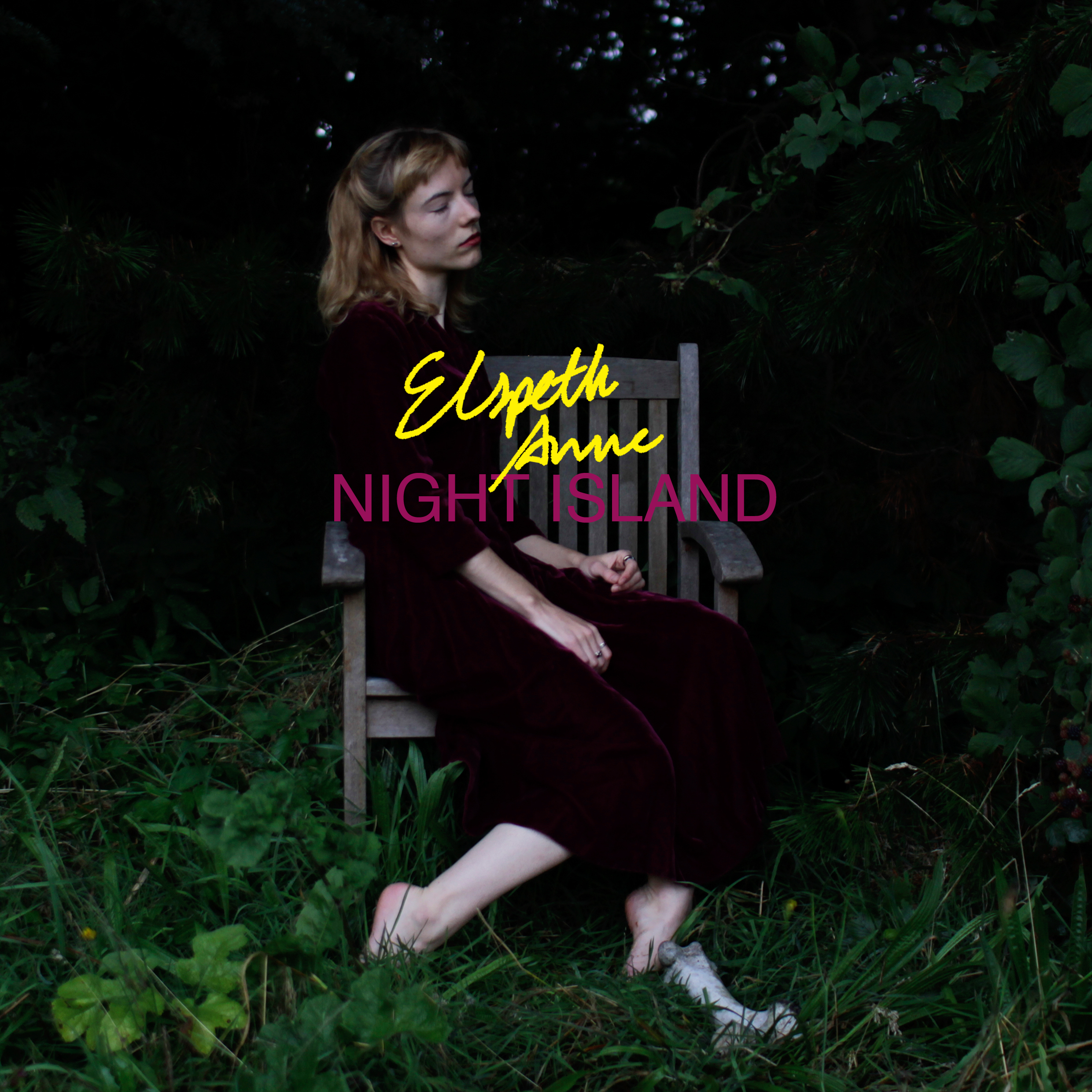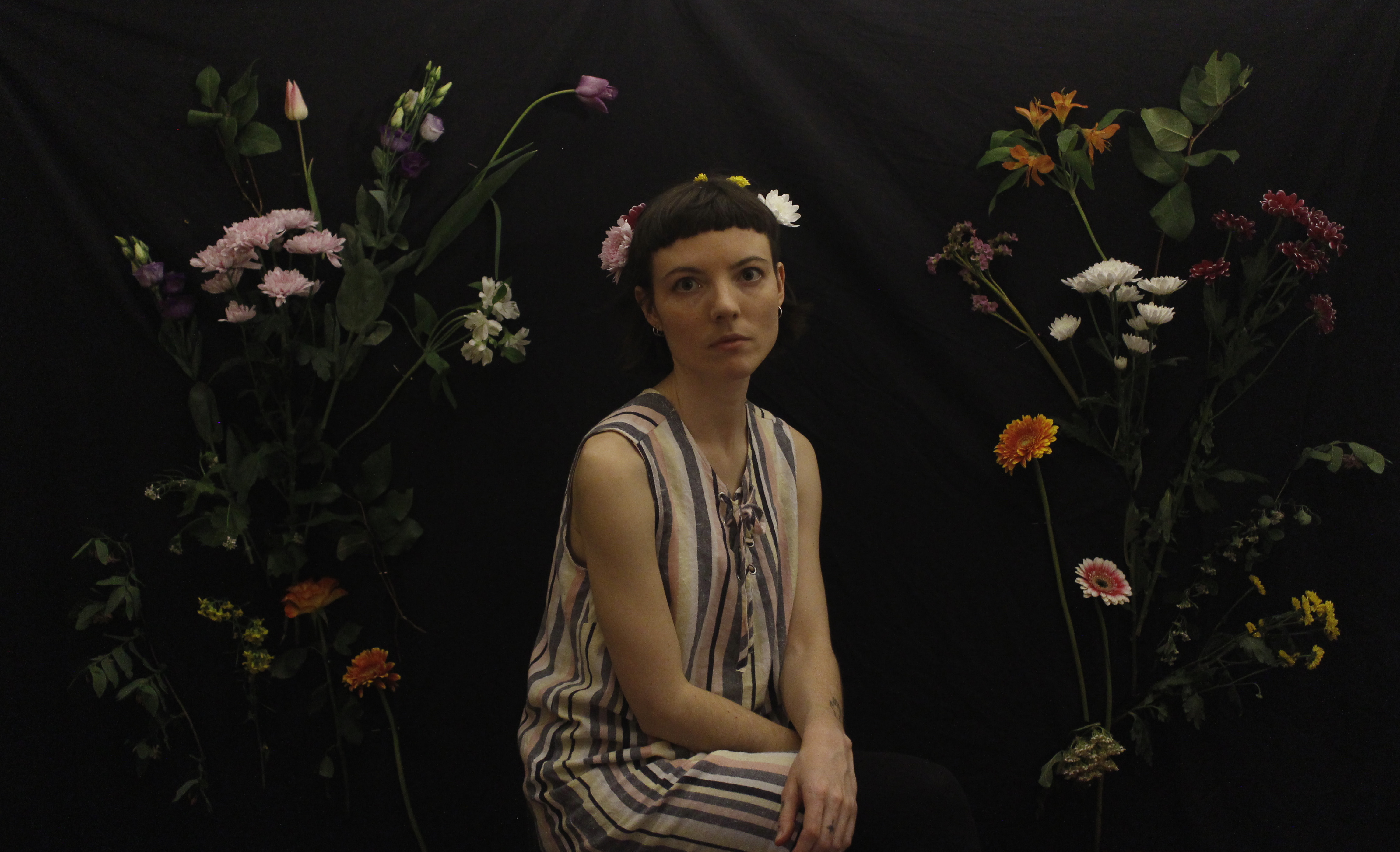 In many countries of the world and also in Europe, the idea of a folk inspired music, which is dark and morbid, appears as an interesting construct. In the British Isles, however, dark folk music has a long history. Traditional songs, which can be found on records by Shirley Collins and others, often reveal a haunted melancholy, and numerous examples of a similar nature from classical films, literature and visual arts can be found. Today, the German-based singer Elspeth Anne is one of the most interesting representatives of this tradition. She mixes folk traditions with unaffected rock influences reminiscent of the time when grunge and riot girl bands had not yet been rammed. In this form, the pieces are also an outlet for the abysses of everyday discomfort. Our interview was done on the occasion of her recently released album “Night Island”, which ends the hiatus after the acclaimed “Thieves Again”.
In many countries of the world and also in Europe, the idea of a folk inspired music, which is dark and morbid, appears as an interesting construct. In the British Isles, however, dark folk music has a long history. Traditional songs, which can be found on records by Shirley Collins and others, often reveal a haunted melancholy, and numerous examples of a similar nature from classical films, literature and visual arts can be found. Today, the German-based singer Elspeth Anne is one of the most interesting representatives of this tradition. She mixes folk traditions with unaffected rock influences reminiscent of the time when grunge and riot girl bands had not yet been rammed. In this form, the pieces are also an outlet for the abysses of everyday discomfort. Our interview was done on the occasion of her recently released album “Night Island”, which ends the hiatus after the acclaimed “Thieves Again”.
There was a five-year gap between “Thieves Again” and “Night Island”. Could you say a few words about the time between these two records?
Aside from the time it took to write new songs and record them, I was going through a very personal traumatic situation for much of that time. In a lot of ways it’s still affecting me but as time passes i have more and more energy for other things. Sometimes I’m a little amazed that i managed to make a second album at all; there was a lot of days of going back to bed and staring at the ceiling for hours.
Did your approach to writing and composing for the two albums differ?
I challenged myself to write slower songs for Night Island when i heard Thieves Again in it’s entirety and realised how hectic it is. It’s great like that but i think it was partly so because i didn’t know how to write slower material. In just changing the pace of the songs you naturally access and draw out different feelings.
Would you say that writing slower music feels like a more honest way for you to express yourself?
No, not more honest, just different. But for me i think admitting to sadness is sometimes harder than admitting to anger and writing a slower pace brings the sadness to the front.
Are there typical situations or moods that usually give you ideas for songwriting?
I’m sure there are but i can’t really put my finger on what situations or moods. Many of the songs on Night Island i can trace part of them back to going to certain places in nature, though it’s not like every time i see a tree i have fantastical musical vision…
Do you see these locations as places you feel at home in or do they rather provide you insights into the unknown?
Both. I feel at home in these places and that gives me space and energy to take on the Unknown! and be excited by it instead of anxious or scared.
On your Facebook page you quote Ally Hardy who stresses that you are a “walking contradiction” and you yourself have descibed your music as both “feral-folk” and “ghostpunk”. Would you say that this oscillating between genres/labels is a means to avoid predictability?
How important are genres for you? Yes, i guess that is why i did it though I try to do less oscillating between genres these days – i think it can be a very subtle form of self-sabotage, making it awkward for people to access you. It can be hard to know what labels to give yourself to make yourself available to your people, but at the moment i’m thinking simpler is better.
This is related to the preceeding question: Your music seems to owe much to both folk and rock. Can you give us a quick trip through your musical socialisation?
My mum listened to a lot of folk music when i was a child so i absorbed a lot of things that way. I got into rock music when i was 12 or so, under the influence of my older sister. Discovering punk in various forms was what made me feel like it would be possible for me to be in a band, and to write my own songs, and that it doesn’t have to be certain way. Coming back to trad folk more and more in my twenties made me aware of it’s similarities to punk, particularly the idea that it’s for everyone – you can be involved, you don’t have to just watch someone else play.
When you characterize your album (maybe a bit tongue-in-cheek) as “uneasy listening”, is that also a comment on some types of music that are all too easy to digest and are maybe closer to muzak?
I didn’t think of it as a comment about other music actually, just that the album has such strong themes of fear and paranoia – it’s uneasy, it’s dark – it’s not a very fun or comforting album. I definitely listen to a lot of music that might be considered easier to digest, i wouldn’t knock it.
I watched a video for one of your older songs (“When They Are Lonely”) and while some of the symbolism and imagery may certainly resonate with the folk horror crowd, the film language defies such easy categorizations. Can you say a few words about this video in particular and the role of videos for you in general?
With that video i had so many ideas and images and just crammed them all in! if i made it again i’d edit it down, make shots last longer etc. But it honours my hectic, hyperactive side for sure. i’d not really thought of it as folk horror but it does fit there. I’m a huge Jan Swankmajer fan and his work influenced a lot of my earlier music videos and my interest in stop-motion animation.
I think i’m still figuring out the role of videos (and visual art) is in relation to my songs, i feel i’m always trying to bring them together but i haven’t gone far enough yet.
I really enjoy playing around with mixing moving image and sound, i find it very easy to get into the flow of that type of work. At the moment i’m looking to collaborate more on visuals – photos, music videos etc. SKF Recordings did my latest music video (for Fog/Haar) and it was so refreshing to collaborate on the vision for it.
It seems that artwork, lyrics and videos generally play an important role in your works. So if you have an idea for something new, is it always the music that first comes into your mind, or can it also be a verse, a visual image, an aspect of packaging or anything else, that can be the initial spark for a new song?
That’s a very good question – it’s not always the music that comes first. All my creative threads weave in and out of each other all the time. For example, some lyrics on The Hollow on Night Island started out as a painting (which was part of the cd artwork for the Cave EP in 2013) and there’s a lot of threads like this in what i do. I often go back and forth with ideas between visual art i make and music – a song will inspire an image which will then birth another song.
You have also worked within the context of a band. Is there anything that you miss when working as a solo artist (compared to Cabin Music)?
I miss having other peoples input and sharing the experience. In Milkteeth we swapped instruments all the time, depending on who had written the song and I loved that, it feels like the most natural way to be in a band to me. i miss that a lot! When i’m solo i sometimes feel very stuck in place.
I definitely get more shit when i play shows on my own – not every time, but when i’m touring as a lone woman i get patronised and/or harassed a lot more. Plus people will try and underpay you more often. Though having said all that i know plenty of women in bands who still get this treatment so it’s not a solo artist problem. The female solo artist problem is more that this sort of treatment can translate to feeling unsafe if you’re alone.
“The Changer” also exists in a more percussive version on your latest Cabin Music album. What was the reason for you to rerecord it solo?
The Cabin Music version is actually the rerecord and i did it because it was so much fun to play with more live weight to it and it fitted in so well with the other four songs on that EP. it’s a song that has more than one thing to say so i always knew it would end up in a few different places.
Are there new recordings planned for Cabin Music?
No, not really. It’s seeming less likely as we (the members) have gaps between us – physically in that i’m in Germany and they’re settled in UK, and that we also have different levels of commitment.
What can you tell us about your former bands Milkteeth and Twitch & Shout? Seems we missed them here in Germany..
Milkteeth was my first band, when i was 16, 17 years old – A duo with my best friend Leili that lasted just over a year before she died of a bacterial infection. We crammed a lot into that time, playing shows most weekends, recording enough material for two albums. We both wrote songs and swapped between playing guitar and singing, and playing drums and backing vocals. Twitch & Shout was also quite a short-lived project, but not as prolific. Basically my songs and vision but with drums and bass backing it up.
Have you released albums with these bands?
Yes, two with Milkteeth! Making Cracks and How to Be A Better Person. And Twitch & Shout made one EP:
Maybe it’s a bit far-fetched but I was wondering whether the line “Nobody saves you and you drown” is an allusion to the end of T.S. Eliot’s “The Love Song of J. Alfred Prufrock”.
I’m a TS Eliot fan but i actually didn’t know that one til now so, no. Though i sometimes feel like some of my lyric writing process is coming up with really good lines and then realising they’re lines from The Hollow Men.
It seems that given the current situation it is almost inevitable to ask an artist how she has been affected by the Corona crisis. Could you say a few words about that if it is not too personal a question?
I think it’s a bit early to guess the full effect in any way at this point; i mean, there’s obvious things: like a lot of people in the music industry i suddenly have no income. I’m lucky to not be too concerned if i catch the virus but i do worry a lot about family and friends who are vulnerable or high risk. On the plus side, it’s given me a bit of breathing space to reassess what I’m doing and why and how; I didn’t realise how much i needed that until now. I think after this I’ll be doing everything differently…
As I spent some weeks in Weobley, Herefordshire, during a teenage school exchange. As you’re also from the West Midlands yourself, I’m just curious about how this part of the UK is today… Is there some vital music culture, though it might be a bit far off from the well known hotspots?
Not that I’ve seen. Though when i was a teenager playing in bands it felt a lot different, more vital. How did you find it as a teenager?
What fascinated me was the fact, that on a surface level it was very much like the small town environment I grew up in and still lived these days, apart from the fact that everything looked and sounded a bit different. I loved to explore things there and enjoyed my first time abroad without my family! By the way, you’re based in Berlin now for some time. How have you experienced this place with it’s particular music and art scenes so far?
I feel very welcomed by the music crowd i’ve met so far, it’s really nice. I feel like there’s lot more to explore too, and so many art and music scenes to delve into. It feels like i’ve only just got started here.
(Interview: M.G. & U.S., Translation: U.S. & N. Seckel)
Elspeth Anne @ Bandcamp | Youtube | Facebook | Patreon | Mailchimp
